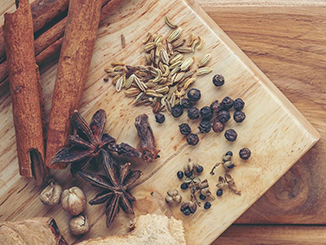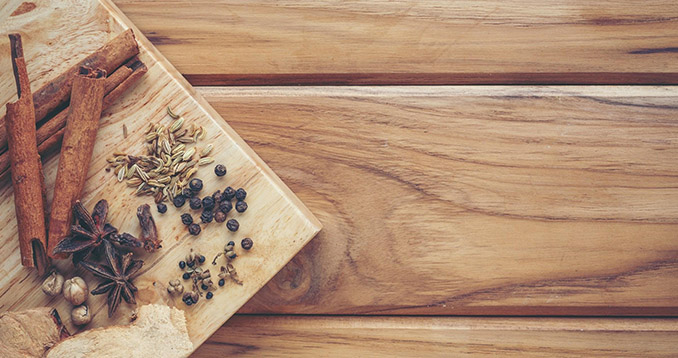

The COVID-19 crisis has led to high levels of psychological distress and a significant impact on mental and emotional health. Such distress is accompanied by alterations in immune function, including an increased risk of viral respiratory tract infections
The immune system plays a critical role in our response to infectious disease. The immune system is the body’s multi-level defence network against potentially harmful bacteria, viruses, and other organisms. Further, Poor mental health conditions, including stress and depression, are associated with an increased risk of acute respiratory infections.
The Ayurveda pays larger emphasis on building the strength of mind and body to cope with various stressors, including infection. The holistic approach of Ayurveda helps to focus on prevention in managing the outbreak of coronavirus. Ayurveda emphasizes the avoidance of causative factors and enhancing the immunity against a host of infections.
Similar to innate and acquired immunity, the Ayurveda concept of immunity (Bala or strength) is classified as natural (Sahaja), chronobiologic (Kalaja), and acquired (Yuktikrut). The body’s overall capacity (Bala and Ojas) can be strengthened through good nourishment, adopting a healthy lifestyle, proper sleep, and adequate exercise. In Ayurveda several treatment options are available for enhancing immunity against respiratory illnesses, these include certain immunomodulators (known as Rasayana), local and systemic interventions. Rasayana are herbal formulations that possess additional health benefits, such as rejuvenating, anti-stress (adaptogen), nootropic (promotes intelligence, memory, and cognitive wellness), and promoting vigor, vitality, and positive health. These traditional practices may be useful in improving the psychological quality of life and reducing the risk of infection
Sewanti Ayurvedic Series team would like to suggest herbs and supplements that could contribute to a positive impact on our immunity and state of mind.
- Strengthening the immune system through a healthy diet and lifestyle practices as a precautionary measure would help to a great extent.
- Adopting Ayurvedic prophylaxis measures such as herbal decoctions, consumption of hot water, gargling with medicated water, and steam inhalation described in Ayurveda for respiratory illnesses. The herbs to
Guduchi (Tinospora cordifolia) (Giloy in Hindi), also known as “Amrita’, is a heavenly elixir considered as Ayurveda’s answer to many infections and fevers. The herb helps modulate the immune system by strengthening the body’s defense mechanism in the event of weak immunity due to stress, chronic illness, and infections. The anti-inflammatory properties of the herb help counter inflammation, which is often found to weaken the body’s defense against invading pathogens. (Upadhyay A K, 2010)
Tulasi (Ocimum sanctum), known as the “Holy Basil”, is one of the most revered herbs in Ayurveda attributed to multiple medicinal benefits. Modern research suggests that Tulasi works against most common pathogens, viz. bacteria, viruses, and fungus. Further, Tulasi is found to boost the body’s defenses against these infective threats by augmenting immune responses. Tulasi can strengthen the immunity of respiratory organs and lower the inflammatory response by modulating pro-inflammatory substances secreted by the cells. (AP, 1971)
Amlaki (Emblica officinalis), known as “Amla”, is arguably among the best ranked ‘Rasayana’ in Ayurveda. Revered worldwide as one of the superfoods, Amla fruit is rich in Vitamin C and other naturally occurring antioxidant compounds. Experts suggest that antioxidants can help decrease viral replication, reduce rapid viral propagation, as well as decrease virus-induced oxidative injury. Amla is one of the best antioxidants you need to stay healthy and protect yourself from viral infections. (R, 1996)
Ashwagandha (Withania somnifera), popularly known as Indian Ginseng, is described by Ayurvedic texts to be a rejuvenating tonic (Balya) and immunomodulator (Rasayana).
Ashwagandha is said to improve the capability of the body to fight infections and diseases through its ability to nourish body tissues and Ojas. Ashwagandha can help alleviate infections and inflammatory conditions by restoring immunity. Ashwagandha helps to balance aggravated Vata and is also an adaptogen to help increase energy and resistance to stress. (M, 2011)
Turmeric, or “Indian saffron,” has a long history of medicinal use. The spice is native to India and Southeast Asia, and is often used as an agent to enhance the flavour and colour of food. It is a source of antioxidants and aids in digestion, helps to increase bile excretion by the liver, and helps to relieve pain and inflammation. Starting your day with a glass of Golden milk prepares your digestive system for the rest of the day. (AP, 1971)
- Massage: Daily abhyanga or self-massage with Padmashri Invigorating Kapha oil will help to improve circulation as a preventive measure.
- Yoga and Meditation: Your daily spiritual practice will help to keep your stress levels low and your immune system healthy.
The above Ayurvedic guidelines offer mental resilience against stress by choosing the rights foods, herbs, and adopting daily regimens like Ayurvedic massage with therapeutic oils.
Now more than ever is the time for us to be proactive about creating small moments of happiness with positive emotions to undo the negativities around us.
Neelam Toprani is CEO, Padmashri Naturals Inc. (Ayurvedic researcher and formulator Sewanti Ayurvedic Series) www.sewanti.com

Leave a Reply